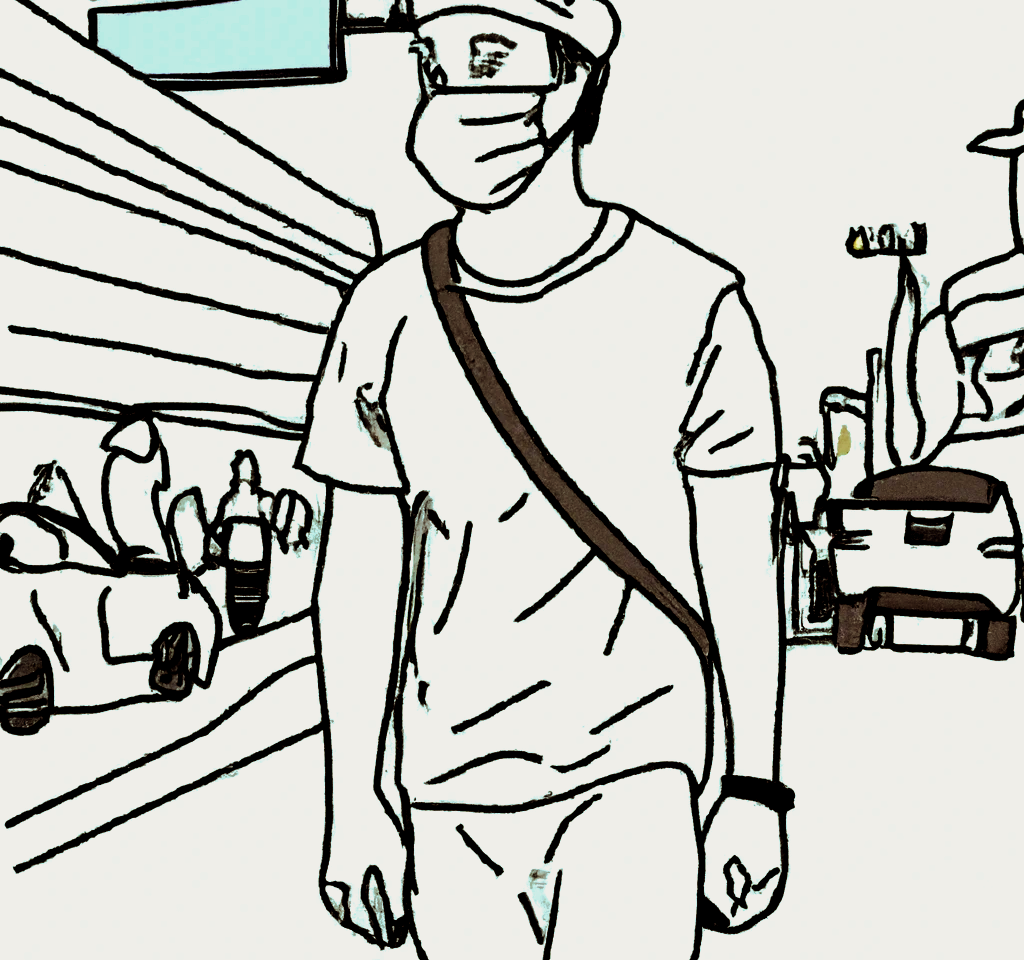By Victor Guo //
I turn 39 this year, and next year I will reach 40. Frankly, approaching middle age after the pandemic is not something I look forward to. The past three years have put a strain on my recovery from schizoaffective disorder, a mood disorder with psychosis.
The constant sight of people in masks triggered feelings of paranoia and distrust within me, which led to me being more easily depressed. But the pandemic restrictions have been lifted, and it is time for me to figure out how to live without fear.
With my mental health condition still lurking at the back of my mind, the truth is that I do fear for my future. I currently have a part-time job as a document scanner, but my retired father wants me to secure a full-time job. Naturally, I get stressed wondering if I would be able to support myself without my family in the coming years.
However, amidst these worries, I am thankful. At least I survived the pandemic. At least I have medication to treat my mental illness. At least I have two close friends whom I meet face-to-face and online respectively. They keep me going whenever I find myself sliding into despair:
“Your life is valuable.”
“Your story is not finished yet.”
And when I express desires to harm myself – “Cannot, Victor!”
They challenge me to approach life events from a different perspective. In my first story, I recounted how I responded to being bullied in secondary school by vowing in 2003 to withdraw from people entirely, hoping to avoid the possibility of being treated poorly ever again. However, recognising that this ‘oath’ did me no good, my friends convinced me to renounce it in 2018. Throughout the pandemic, I was tempted to revert to the oath, but their genuine love and concern for me prevented me from doing so.
Hence, instead of escaping, I discovered a new way forward.
I revisited my childhood interest in ancient Chinese characters by delving into extensive online research. Specifically, I studied their earliest form – ancient characters carved into oracle bones 4,000 years ago. I carefully drew them on small plain cards, scanned them, and compiled them into a Word document which grew to more than 150 pages. Of course, this was hard work! But it kept my brain from overthinking, instead concentrating on what I loved. This year, I self-published this project as an e-book, in which each oracle bone character is accompanied by its present-day form, English translation, my analysis, and hand-drawn illustration. I have no intention of earning money from this e-book. My satisfaction comes from knowing that my hard work has turned into something beautiful, and that people would one day come to appreciate it.

Besides working my brain, I also learnt to care for my physical health. I started going on long walks last year. Almost every Saturday, I take a two-and-a-half-hour walk from East Coast Park to Changi. This routine relieves me from the busyness of life and the symptoms of my mental health condition, even if just temporarily. I also take supplements to boost my health so that I do not fall sick easily.
Though schizoaffective disorder continues to pose challenges, my experience shows that it can be managed through a holistic approach. Identify your triggers, share your struggles with the people you trust, enjoy your hobbies, exercise, and remember to take your medication.
Take it one day at a time, and cry if you must. Remember that your story is not finished yet.
Victor Guo is recovering from schizoaffective disorder which changed his life. Though his mood goes through ups and downs, he persists in living and seeking help when needed. He currently works as a scanner and hopes to find a stable job after his scanning job is over.
Read more of our Tapestry Stories here. Share your story here.
Image generated using DALL·E 2

